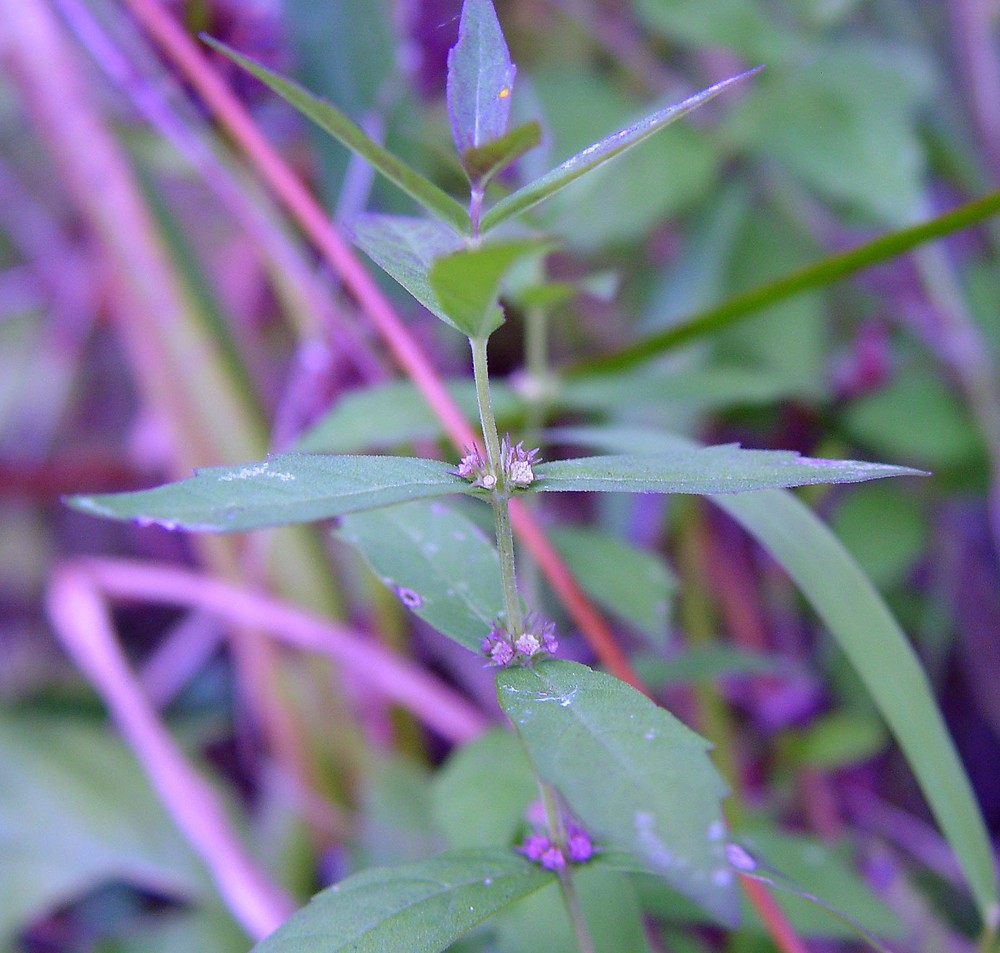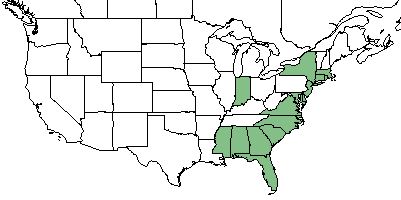Difference between revisions of "Lycopus amplectens"
(→Conservation and Management) |
|||
| Line 41: | Line 41: | ||
==Conservation and Management== | ==Conservation and Management== | ||
| + | ''L. amplectens'' is listed as a special concern species by the Connecticut Department of Environmental Protection, and as endangered by the Indiana Department of Natural Resources Division of Nature Preserves and the Maryland Department of Natural Resources Natural Heritage Program. <ref name= "USDA Plant Database"/> | ||
==Cultivation and restoration== | ==Cultivation and restoration== | ||
Revision as of 14:33, 24 May 2018
| Lycopus amplectens | |
|---|---|

| |
| Photo by © Arthur Haines, New England Wild Flower Society | |
| Scientific classification | |
| Kingdom: | Plantae |
| Division: | Magnoliophyta - Flowering plants |
| Class: | Magnoliopsida - Dicots |
| Order: | Lamiales |
| Family: | Lamiaceae |
| Genus: | Lycopus |
| Species: | L. amplectens |
| Binomial name | |
| Lycopus amplectens Raf. | |

| |
| Natural range of Lycopus amplectens from USDA NRCS Plants Database. | |
Contents
Taxonomic Notes
Synonyms: L. amplectens var. pubens (Britton) Fernald; L. pubens Britton; L. sessilifolius A. Gray
Varieties: none
Description
L. amplectens is a perennial forb/herb of the Lamiaceae family native to North America. [1]
Distribution
L. amplectens is found along the southeastern coast of the United States from Mississippi to Massachusetts, as well as Indiana. [1]
Ecology
Habitat
L. amplectens proliferates in clay-based Carolina bays and other moist habitats. [2]
Conservation and Management
L. amplectens is listed as a special concern species by the Connecticut Department of Environmental Protection, and as endangered by the Indiana Department of Natural Resources Division of Nature Preserves and the Maryland Department of Natural Resources Natural Heritage Program. [1]
Cultivation and restoration
Photo Gallery
References and notes
- ↑ 1.0 1.1 1.2 USDA Plant Database https://plants.usda.gov/core/profile?symbol=LYAM2
- ↑ Weakley, A. S. (2015). Flora of the Southern and Mid-Atlantic States. Chapel Hill, NC, University of North Carolina Herbarium.